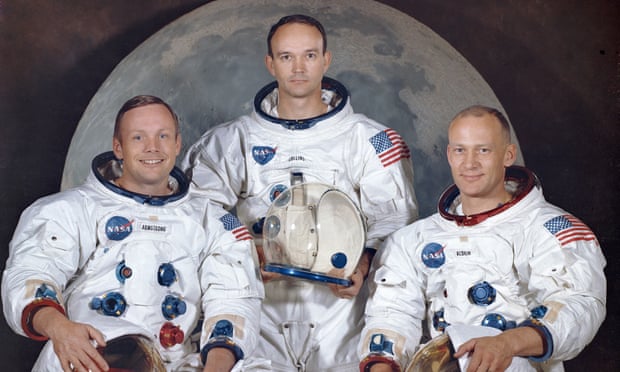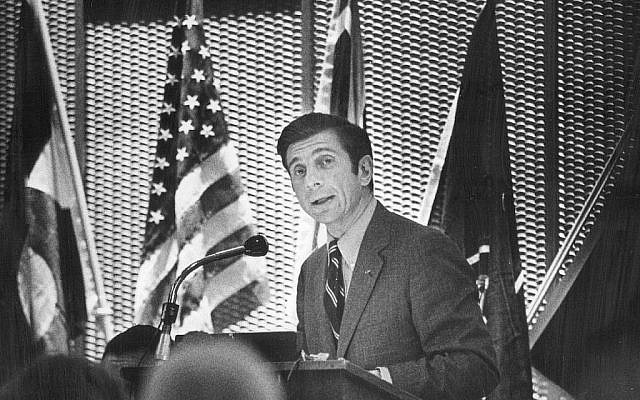Bergman Brought Us to the Stars
Jules Bergman was the reporter who brought all 54 manned space flights of his lifetime into living rooms across the country and around the globe.
Fifty years after the Apollo 11 mission landed three men on the moon, and the words, “That’s one small step for man, one giant leap for mankind,” were forever burned into the annals of American history, the names Armstrong, Aldrin and Collins are still household names.
One name from the era however, that of Jules Bergman, is perhaps less well known, particularly to younger readers. Bergman was the reporter who brought all 54 manned space flights of his lifetime into living rooms across the country and around the globe.
Bergman grew up in New York City, but spent much of his time at Kennedy Space Center in Cape Canaveral, Fla., where his goal was to show “not an ivory-tower discussion of science, but an on-the-spot report of discoveries, which are changing the lives of human beings daily.”
As part of that reporting Bergman demonstrated personally the challenges and obstacles of space travel, including undertaking the exercise routine astronauts used to prepare for space travel and enduring five Gs, equivalent to five times the force of the earth’s gravity.
“I know that he was incredibly passionate about NASA and all of space exploration. That comes across even when you watch him,” his nephew, Mark Bergman, told the Jewish Telegraphic Agency in a phone interview July 17, just days before the 50th anniversary.
While he didn’t speak about his Jewish identity publicly, Bergman was among very few Jews who were so intricately connected to the space age. Judith Resnick was the first Jewish American to go into space in 1984. She was killed two years later in the Space Shuttle Challenger disaster.
While keeping his feet on solid ground, Bergman is known for making the majesty and mystery of the “Space Age” accessible to each and every viewer. As a longstanding ABC News science editor, Bergman was the first correspondent to be assigned to full-time space coverage, according to the New York Times in his 1987 obituary.
Covering both the ecstatic highs of the space race, as well as the decimating tragedies, Bergman was on hand in 1967 when a fire tore through the Apollo 1 spacecraft, killing three astronauts.
“They died at T minus 10 minutes into a simulated launch countdown,” he said, “helplessly trapped inside their spacecraft.”
So too was he the voice of some of America’s greatest triumphs in the middle 20th century, including when Armstrong and Aldrin were the first humans to walk on the moon. He spoke to the 650 million watching history unfold.

“What’s happening now up there is that, at this point, Aldrin and Armstrong are scheduled to, and we have every reason to think they are, eating dinner, like millions of other Americans,” Bergman said. “Who can imagine any more unusual place for two Americans to have dinner than on the moon?”
While his work was admired by viewers, Bergman was known for having a specific demeanor among colleagues.
“[H]e was the most disliked person I guess in the program, but he did his homework and he was real good,” Jack King, who served as NASA’s public affairs officer, said in part one of the three-part PBS documentary “Chasing the Moon,” which aired earlier this month.
George Alexander, a fellow journalist, agreed with that assessment in the documentary.
“There were several prima donnas in broadcasting, Jules Bergman being the preeminent example,” Alexander said. “Jules wanted you to know that he could have been an astronaut.”
Bergman underwent many surgeries for brain tumors beginning in the late 1970s and was found dead in his New York apartment on Feb. 11, 1987, at the age of 57. He was eulogized by astronaut Joseph P. Allen.
The National Association of Physician Broadcasters named its award for excellence in his honor and footage of his reporting has been used in Hollywood dramas from “Apollo 13” to “Hidden Figures.”
Compiled by AJT Staff.




comments